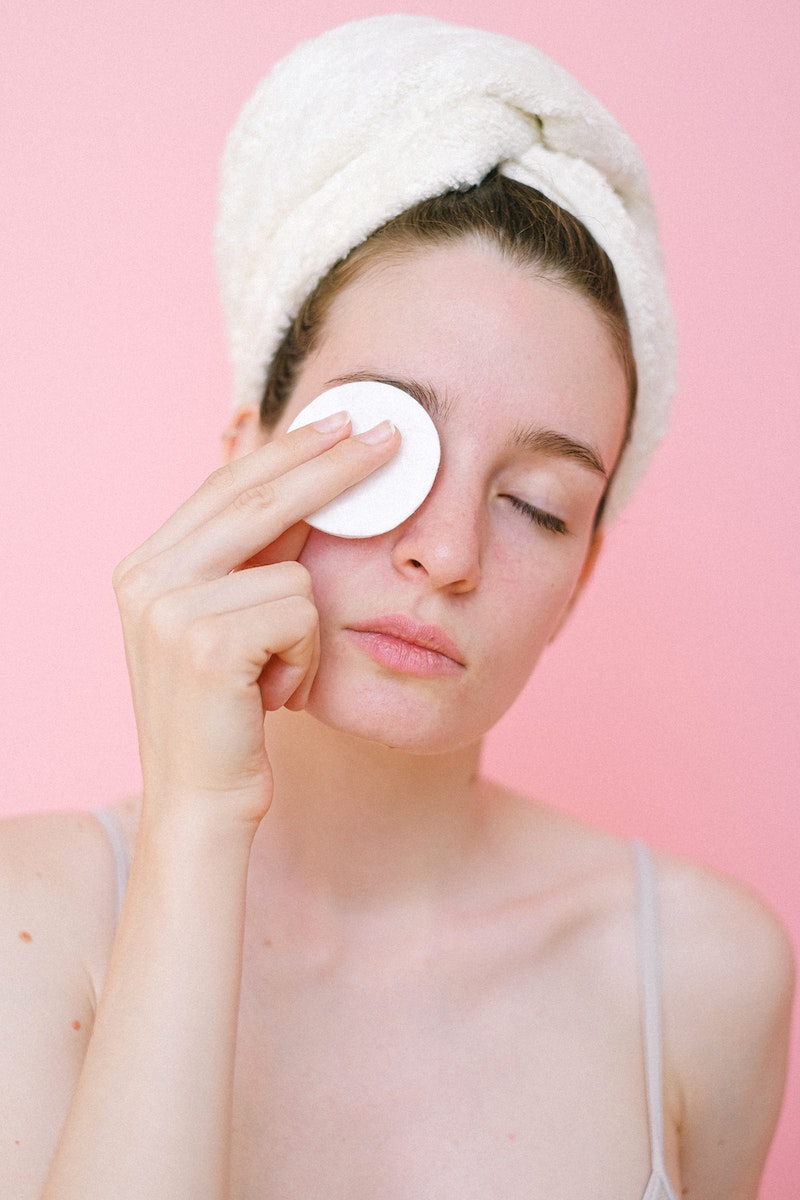Living with pain can be a challenging experience, often impacting various aspects of our daily lives. Whether it’s chronic pain, temporary discomfort, or post-injury recovery, finding effective pain management strategies is crucial to enhancing overall well-being. While medical interventions and professional guidance are essential, incorporating home pain management techniques can significantly empower your comfort and contribute to your overall wellness. In this article, we will explore a variety of valuable strategies and approaches that you can implement in the comfort of your own home to alleviate pain and improve your quality of life.
Understanding Pain Management
Before diving into specific home pain management techniques, it’s essential to grasp the concept of pain management itself. Pain management refers to a multidisciplinary approach aimed at alleviating pain, enhancing functionality, and improving the overall quality of life for individuals suffering from acute or chronic pain conditions. While medical treatments like medications, physical therapy, or surgery are commonly prescribed, home pain management techniques serve as complementary strategies that can be easily incorporated into one’s daily routine.
Establishing a Wellness Routine
Creating a wellness routine is a fundamental step towards empowering your comfort and managing pain effectively. By incorporating activities that promote relaxation, reduce stress, and enhance flexibility, you can significantly contribute to your overall well-being.
1. Mindfulness and Meditation
Practicing mindfulness and meditation techniques can help redirect your focus away from pain, promoting a sense of relaxation and calm. Consider setting aside a dedicated time each day for meditation, focusing on your breath and allowing yourself to let go of any tension or discomfort.
- Start by finding a quiet and comfortable space in your home where you can sit or lie down.
- Close your eyes and take a few deep breaths, allowing your body to relax.
- Focus your attention on your breath, observing the sensation of each inhale and exhale.
- If your mind wanders, gently bring it back to the present moment and the sensation of your breath.
- As you practice regularly, you may notice an increased ability to detach from pain and experience a greater sense of calm.
2. Gentle Exercise and Stretching
Engaging in gentle exercise and stretching routines can improve flexibility, strengthen muscles, and alleviate pain by increasing blood flow to affected areas. Consult with a healthcare professional or a qualified instructor to explore suitable exercises for your specific condition.
- Start with low-impact exercises such as walking, swimming, or cycling to improve cardiovascular health and overall fitness.
- Incorporate stretching exercises that target specific muscle groups or joints affected by pain. This can help improve range of motion and reduce stiffness.
- Consider activities like yoga or tai chi, which combine gentle movements, stretching, and relaxation techniques to promote physical and mental well-being.
3. Heat and Cold Therapy
Heat and cold therapy can provide effective pain relief by reducing inflammation and promoting relaxation. Applying a heating pad or taking a warm bath can soothe muscles and joints, while using ice packs or cold compresses can numb pain and reduce swelling.
- For acute pain or inflammation, apply an ice pack wrapped in a towel to the affected area for about 15-20 minutes. Repeat this every few hours as needed.
- For chronic pain or stiffness, try using a heating pad or taking a warm bath to relax muscles and increase blood circulation.
- Experiment with different temperatures and durations to find the most effective combination for your specific pain management needs.
4. Proper Sleep Hygiene
Getting adequate sleep is crucial for pain management and overall well-being. Establish a regular sleep schedule, create a comfortable sleep environment, and practice relaxation techniques before bedtime to promote restful sleep and aid in pain management.
- Maintain a consistent sleep schedule by going to bed and waking up at the same time each day, even on weekends.
- Create a sleep-friendly environment by keeping your bedroom cool, dark, and quiet. Consider using earplugs, eye masks, or white noise machines if necessary.
- Develop a relaxing bedtime routine that includes activities such as reading a book, taking a warm bath, or practicing deep breathing exercises.
- Avoid caffeine, nicotine, and electronic devices close to bedtime, as these can interfere with sleep quality.
Mind-Body Techniques
Mind-body techniques are valuable tools that can empower you to take control of your pain management journey. By harnessing the power of the mind and incorporating practices that promote relaxation and stress reduction, you can enhance your overall well-being and effectively manage pain from the comfort of your home.
1. Biofeedback
Biofeedback is a technique that allows individuals to gain control over their body’s physiological responses by providing real-time feedback. By learning to regulate physical responses such as heart rate, muscle tension, or skin temperature, you can actively manage pain levels and promote relaxation.
- Consult with a healthcare professional to determine if biofeedback is a suitable option for you.
- During a biofeedback session, sensors are attached to your body to monitor specific physiological responses.
- Through visual or auditory feedback, you can learn to identify and modify these responses, reducing pain and promoting relaxation.
- With practice, you can develop the skills to regulate your body’s responses even without the need for biofeedback equipment.
2. Cognitive-Behavioral Therapy (CBT)
Cognitive-Behavioral Therapy (CBT) is a psychotherapeutic approach that helps individuals identify and modify negative thoughts and behaviors. By challenging negative thinking patterns and developing healthier coping mechanisms, CBT can contribute to pain management and improve overall well-being.
- Consider seeking guidance from a qualified therapist or counselor who specializes in CBT for pain management.
- In CBT sessions, you will learn to identify and challenge negative thoughts related to pain, such as catastrophizing or overgeneralization.
- Through techniques like reframing, you can develop a more balanced and realistic perspective on your pain and its impact on your life.
- CBT may also involve behavioral interventions, such as gradually increasing activity levels or practicing relaxation techniques, to improve pain tolerance and overall functioning.
3. Guided Imagery
Guided imagery involves using visualizations and mental imagery to promote relaxation and reduce pain. By immersing yourself in positive and calming mental images, you can divert your attention away from pain and create a more peaceful state of mind.
- Find a quiet and comfortable space where you can relax without interruptions.
- Close your eyes and imagine yourself in a peaceful and serene environment, such as a beach or a garden.
- Engage your senses by visualizing the details, sounds, scents, and textures of your chosen environment.
- Allow yourself to fully experience the relaxation and comfort of this mental imagery, letting go of any pain or tension you may be feeling.
4. Breathing Techniques
Breathing techniques, such as diaphragmatic breathing or deep breathing exercises, can activate the body’s relaxation response and alleviate pain. By focusing on slow, deep breaths, you can reduce stress, promote relaxation, and effectively manage pain.
- Find a comfortable position, either sitting or lying down, and place one hand on your abdomen.
- Take a slow, deep breath in through your nose, allowing your abdomen to rise as you fill your lungs with air.
- Exhale slowly through your mouth, feeling your abdomen fall as you release the breath.
- Continue breathing deeply and rhythmically, focusing on the sensation of your breath and allowing tension to melt away with each exhale.
The Power of Nutrition
Proper nutrition plays a vital role in overall wellness and can significantly impact pain management. Incorporating anti-inflammatory foods, essential nutrients, and maintaining a healthy weight can contribute to reducing pain levels and enhancing your comfort at home.
1. Anti-Inflammatory Foods
Including anti-inflammatory foods in your diet can help reduce inflammation and alleviate pain. Incorporate foods rich in omega-3 fatty acids, such as fatty fish, flaxseeds, and walnuts, as well as vibrant fruits and vegetables that contain powerful antioxidants.
- Add fatty fish like salmon, sardines, or mackerel to your diet, as they are excellent sources of omega-3 fatty acids.
- Include flaxseeds, chia seeds, or walnuts in your meals or snacks to boost your intake of healthy fats.
- Opt for a wide variety of colorful fruits and vegetables, as they are packed with antioxidants that can help combat inflammation.
- Consider incorporating spices like turmeric, ginger, and cinnamon, which have natural anti-inflammatory properties.
2. Hydration
Staying adequately hydrated is crucial for maintaining overall health and managing pain. Aim to drink enough water throughout the day to support optimal bodily functions and promote joint and muscle health.
- Keep a water bottle with you throughout the day as a reminder to drink water regularly.
- Aim to drink at least eight glasses of water per day, or more if you engage in physical activity or live in a hot climate.
- If plain water becomes monotonous, try infusing it with slices of fruits or herbs for a refreshing twist.
- Be mindful of your body’s signals of thirst and aim to stay hydrated consistently.
3. Essential Nutrients
Certain nutrients, such as vitamin D, magnesium, and calcium, play a significant role in supporting bone health and reducing pain. Ensure your diet includes foods rich in these nutrients or consider supplements under the guidance of a healthcare professional.
- Incorporate vitamin D-rich foods like fatty fish, fortified dairy products, or egg yolks into your diet.
- Include magnesium sources such as leafy green vegetables, nuts, seeds, and whole grains in your meals.
- Consume calcium-rich foods like dairy products, leafy green vegetables, or fortified plant-based milk alternatives.
- Consult with a healthcare professional to determine if supplements are necessary to meet your specific nutrient needs.
4. Healthy Weight Management
Maintaining a healthy weight can alleviate stress on joints and reduce pain levels. Focus on consuming a balanced diet and engaging in regular physical activity to achieve and maintain a weight that supports your overall well-being.
- Aim for a balanced diet that includes lean proteins, whole grains, fruits, vegetables, and healthy fats.
- Practice portion control to ensure you are consuming appropriate amounts of food for your activity level and body’s needs.
- Engage in regular physical activity that is appropriate for your fitness level and pain condition. Consult with a healthcare professional or a qualified fitness instructor for guidance.
- Seek support from healthcare professionals or registered dietitians if you need assistance in developing a personalized weight management plan.
In conclusion, empowering your comfort and elevating your wellness through home pain management techniques is within your reach. By establishing a comprehensive wellness routine, incorporating mind-body techniques, and prioritizing proper nutrition, you can effectively manage pain and improve your quality of life from the comfort of your own home. Remember to consult with healthcare professionals as needed, and tailor these strategies to suit your individual needs. Take control of your pain management journey and embrace the empowerment that comes with prioritizing your comfort and well-being.
Pain management refers to a multidisciplinary approach aimed at alleviating pain, enhancing functionality, and improving the overall quality of life for individuals suffering from acute or chronic pain conditions. It includes medical treatments as well as complementary home pain management techniques.
2. How can I establish a wellness routine to manage pain at home?
To establish a wellness routine for pain management at home, you can incorporate activities that promote relaxation, reduce stress, and enhance flexibility. This may include practices like mindfulness and meditation, gentle exercise and stretching, heat and cold therapy, and maintaining proper sleep hygiene.
3. What are some mind-body techniques for home pain management?
Mind-body techniques for home pain management include biofeedback, cognitive-behavioral therapy (CBT), guided imagery, and breathing techniques. These techniques harness the power of the mind to promote relaxation, reduce stress, and manage pain effectively.
4. How can nutrition impact pain management at home?
Proper nutrition plays a vital role in pain management at home. Including anti-inflammatory foods, staying hydrated, ensuring adequate intake of essential nutrients, and maintaining a healthy weight can all contribute to reducing pain levels and enhancing comfort.









